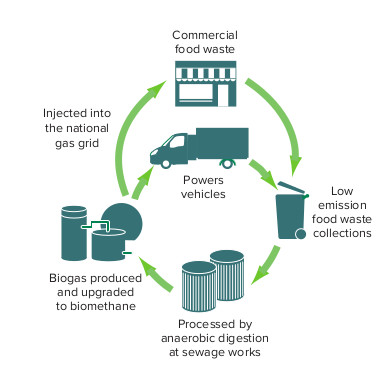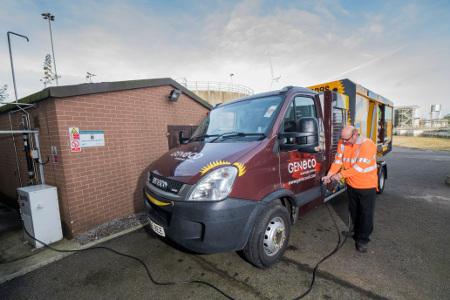Feature Stories
A Steward of Our Good Earth
ENVIRONMENT 4 November 2018
Bristol is one of the 40 places in the United Kingdom that consistently exceeds air quality limits for nitrogen oxide. In response to this, GENeco in October 2017 introduced Bio-Bee, a pioneer truck that both collects and runs on food waste This followed the success of the Bio-Bug and Bio-Bus.
Food waste collected across 30 sites in Avonmouth, Bristol, is processed by anaerobic digestion at the sewage works, before producing biomethane and fertiliser. The biomethane generated from human excretion and food waste is fed into the national grid and used to power vehicles (Bio-Bee) and potentially, homes.

Biomethane creates clean fuel for vehicles, demonstrating an alternative to diesel RCVs and HGVs. In January 2018, a second Bio-Bee with a larger fuel tank was added to the operations. Both Bio-Bees have collected over 350 tonnes of food waste, equivalent to 200 tonnes of CO2 saved on yearly basis. This means that 75 cars are taken off road per year! In addition, the digested food waste is also recycled to become bio-fertiliser for land, thus reducing the usage of chemical fertiliser that does harm to the environment.
This circular economy approach has won GENeco the 2018 Rushlight’s Organic Resource Award and the 2018 Awards for Excellence in Recycling and Waste Management. GENeco continues to export biomethane to the local gas grid, and formed a partnership with Bristol Energy in April 2018, in addition to the sale of green gas certificates to Unilever. Some residents of Bristol will be cooking their meals using energy produced from food and human waste.



